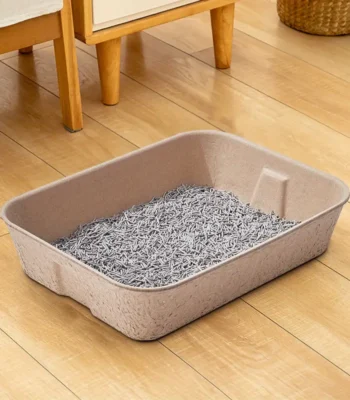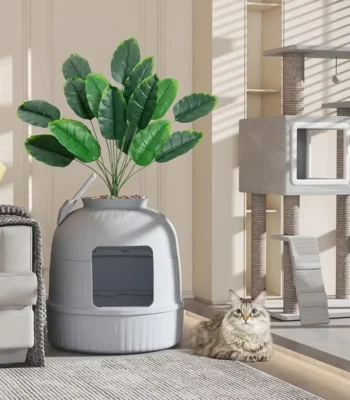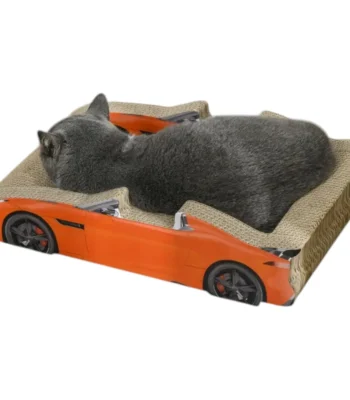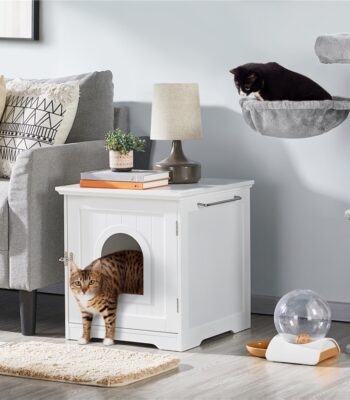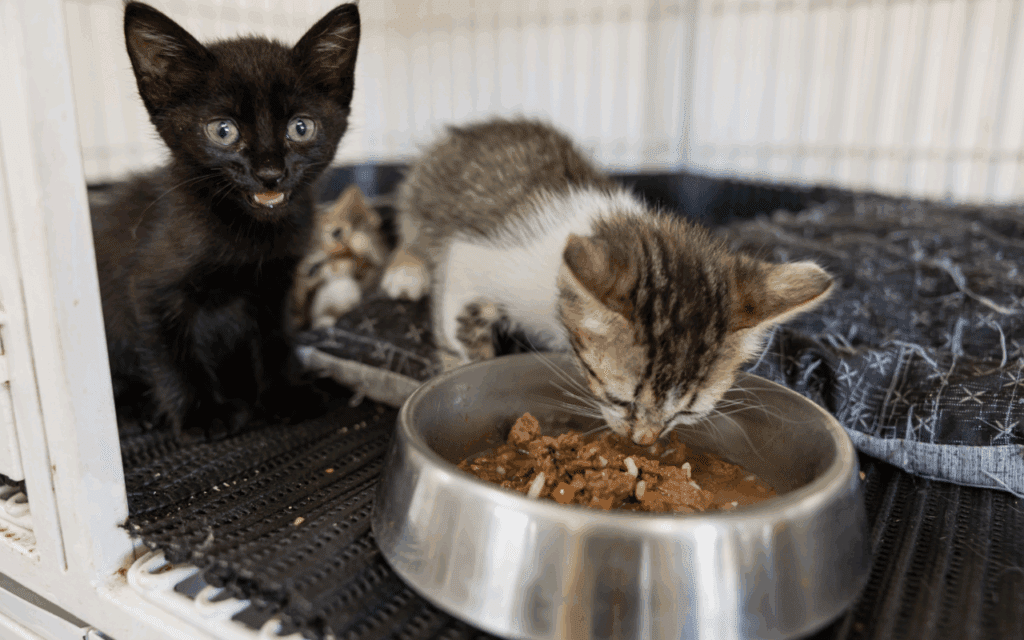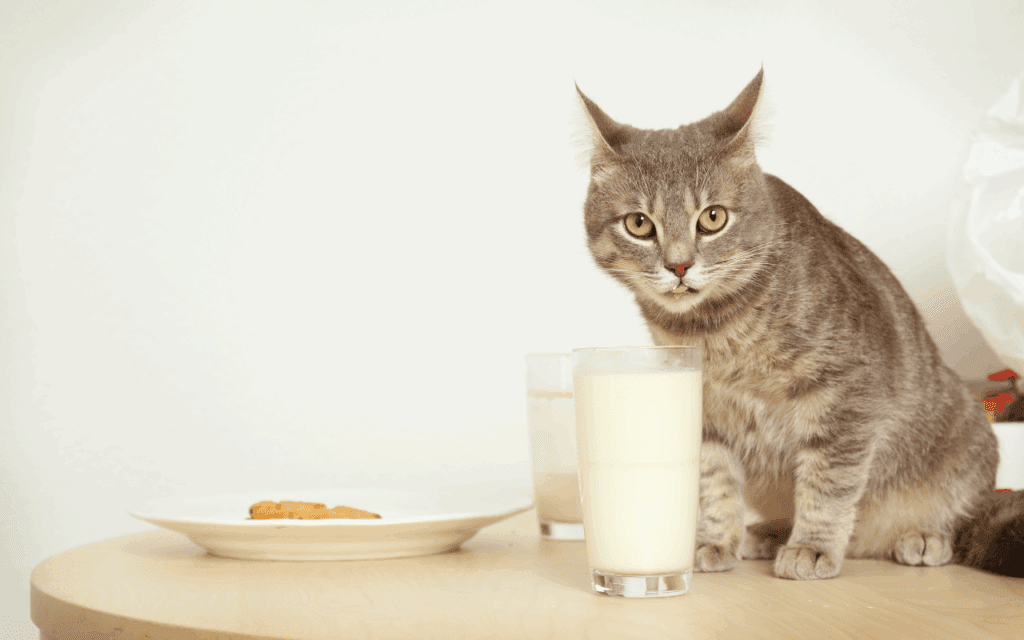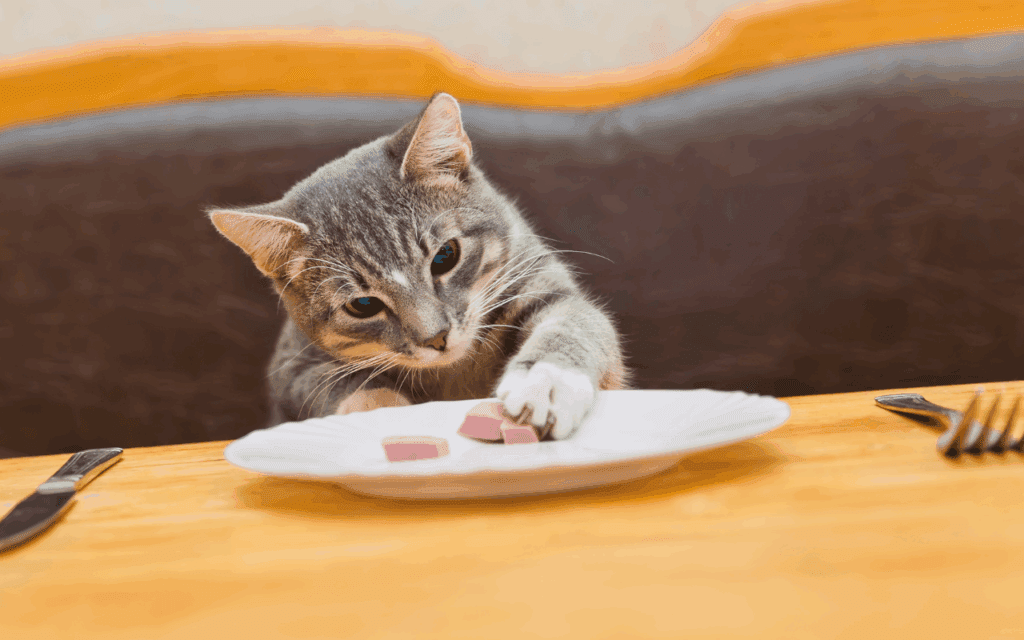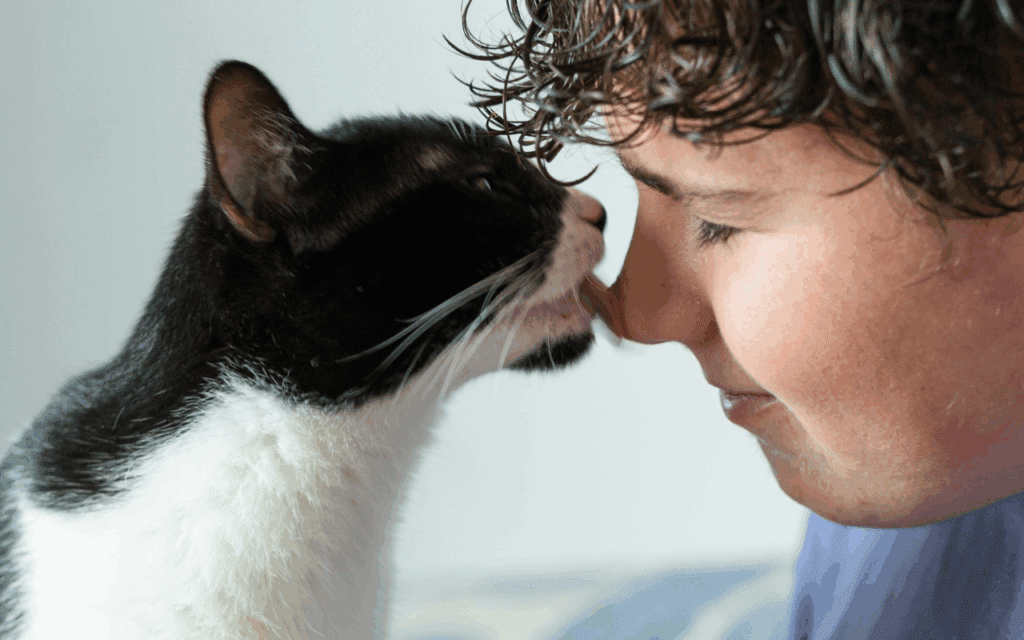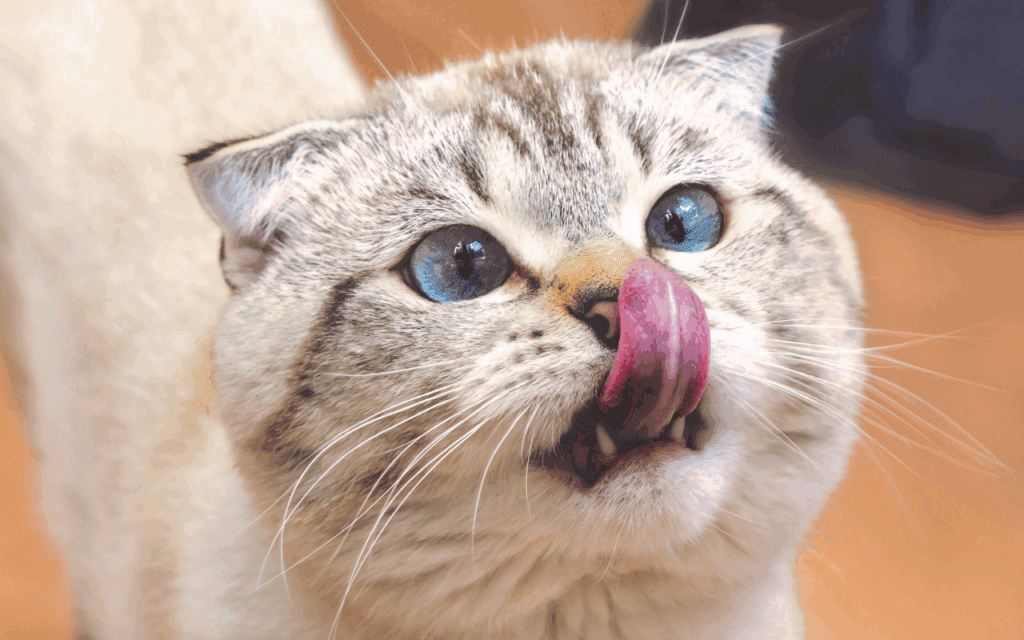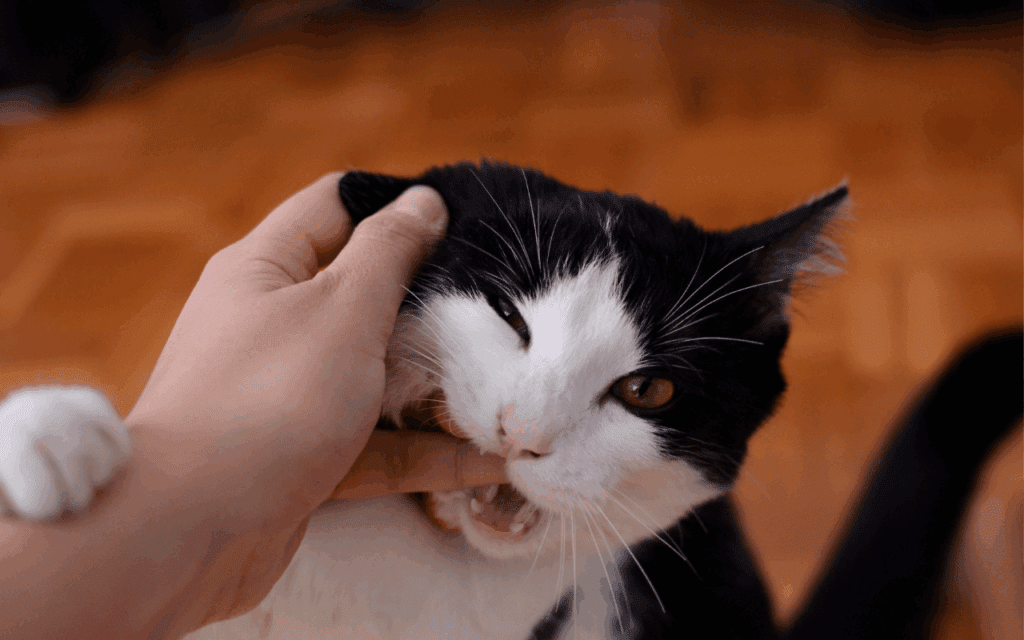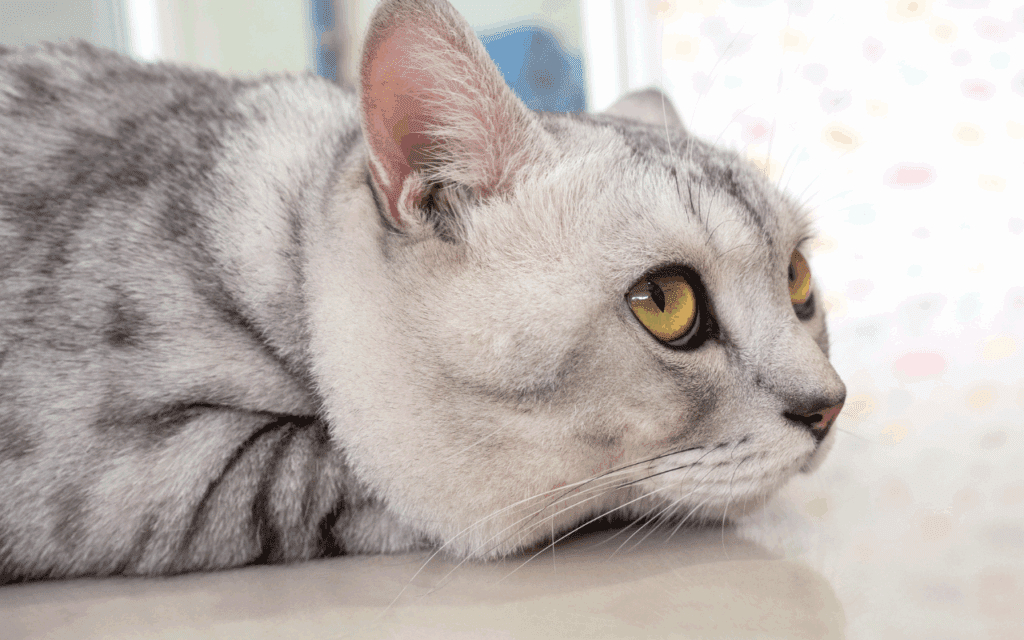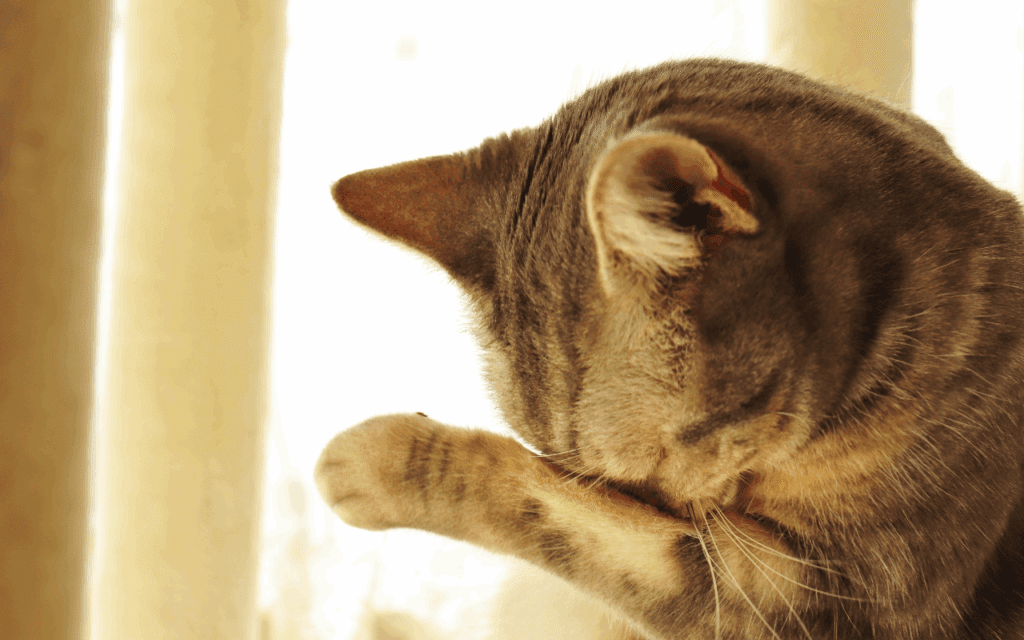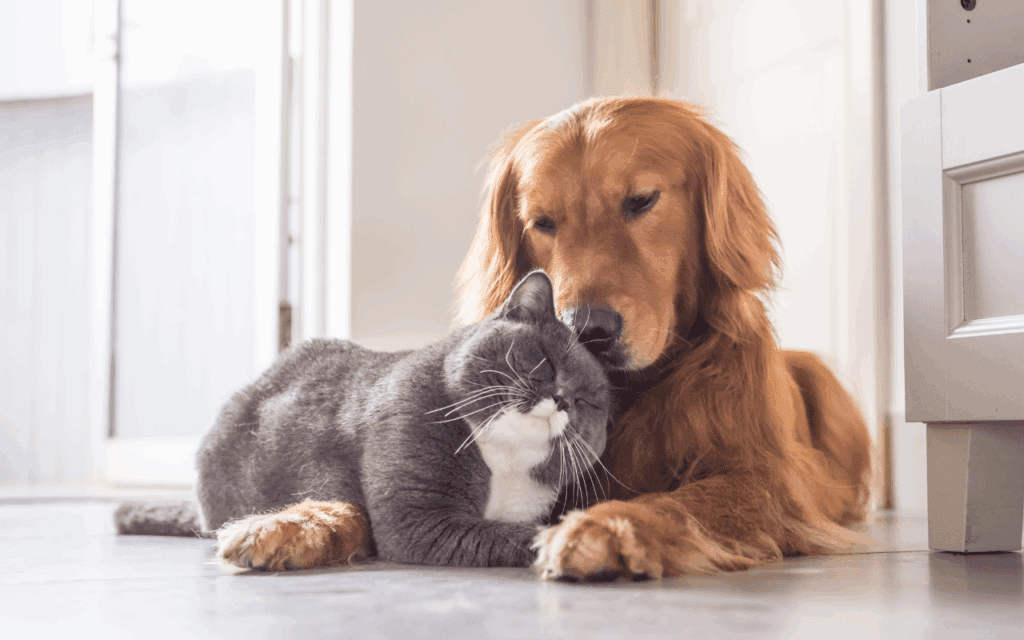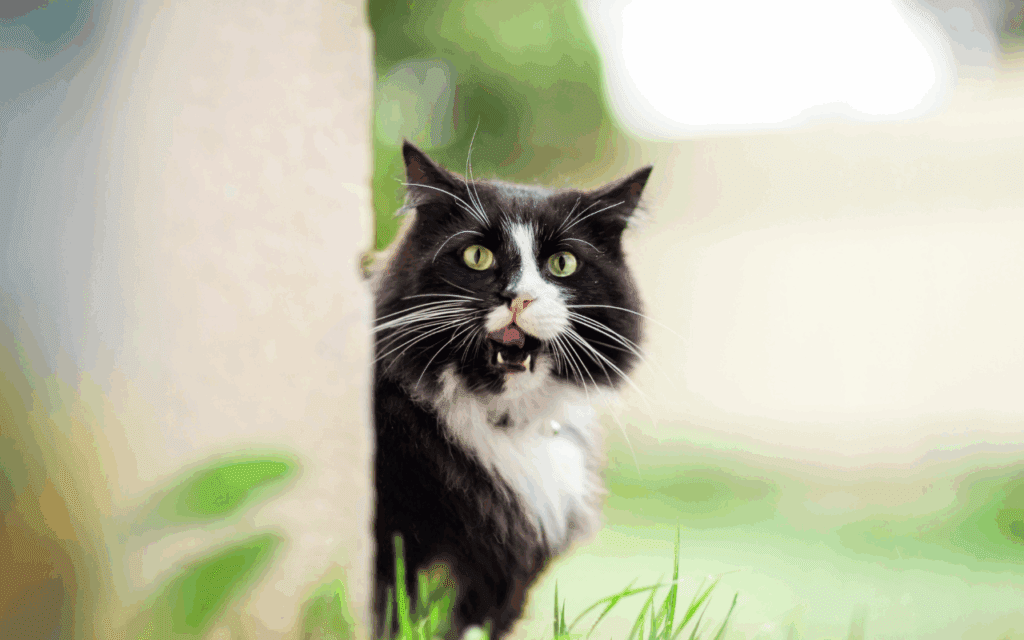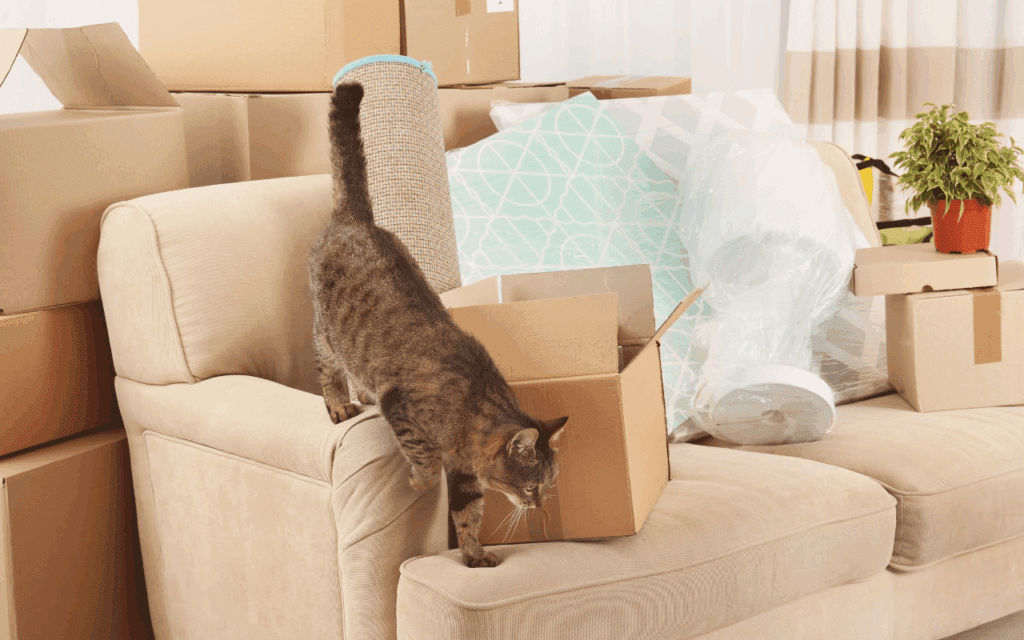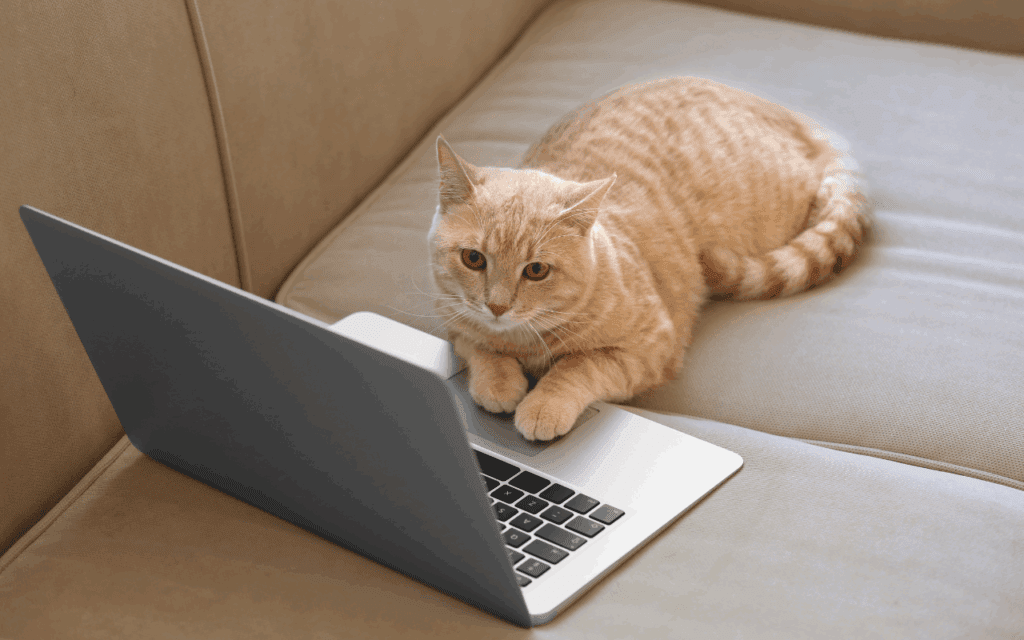Maine Coon Cat Breed Information
The Maine Coon is one of the largest domestic cat breeds, renowned for its massive size, tufted ears, bushy tail, and affectionate nature. Originally from Maine, USA, these cats evolved to withstand harsh winters, sporting a semi-long, water-resistant coat. Their dog-like personality, intelligence, and strong bonds with humans make them ideal companions for families, singles, and multi-pet households.
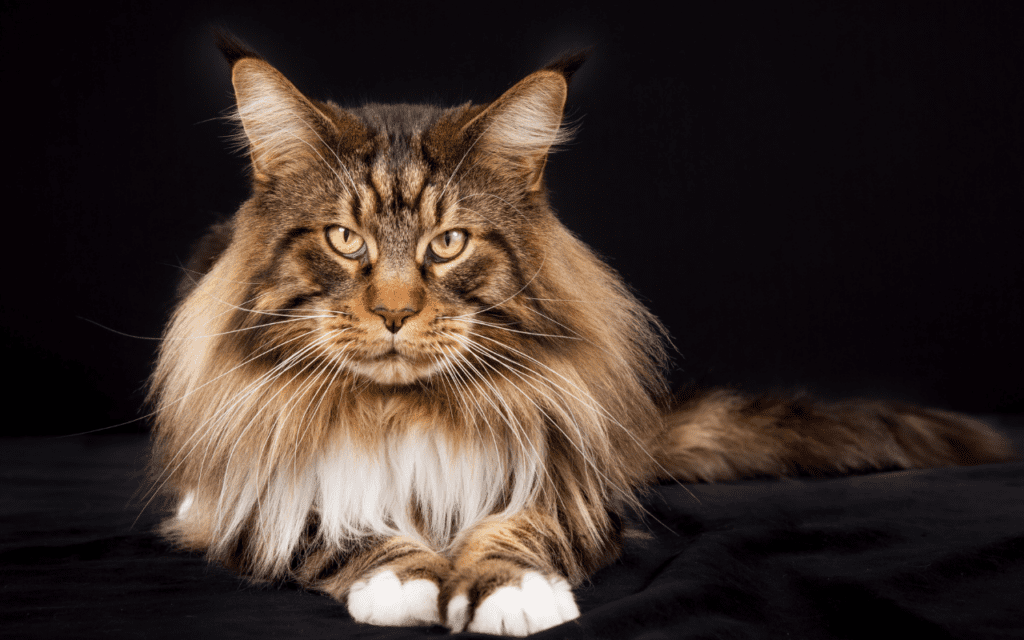
Quick Facts About Maine Coon Breed
- Long Haired
- Large Size
- High Grooming Needs
- Moderate Energy Levels
- High Shedding
- Low Vocalisation

Table of Contents
Maine Coon Breed History and Origins
The Maine Coon’s history is filled with folklore and mystery. While their true origins remain unknown, theories include:
- Raccoon Myth – Early settlers believed Maine Coons were part raccoon due to their bushy tails and tabby markings (biologically impossible!).
- Viking Cats – Some suggest that Maine Coons are descendants of long-haired cats brought by Vikings.
- Marie Antoinette’s Cats – Legend has it that the French Queen’s long-haired cats made it to America and bred with local cats.
Regardless of legend, Maine Coons became popular in the 19th century for their hunting prowess and resilience, making them a cherished breed worldwide.
Understanding the Maine Coon Temperament
Maine Coons are often called the “gentle giants” of the cat world. Here’s what makes them so special:
- Affectionate but Not Clingy – They love human interaction but respect personal space.
- Dog-Like Loyalty – Many Maine Coons follow their owners around the house.
- Highly Intelligent – They excel at learning tricks, playing fetch, and solving puzzle toys.
- Friendly with Other Pets – They co-exist well with dogs and cats when properly introduced.
- Chirps & Trills Instead of Loud Meows – Unlike some breeds, their vocalisations are gentle and expressive.
Deep Dive: Learn more about Maine Coon personality & temperament
Key Characteristics of Maine Coon Cats
- Size: One of the largest domestic breeds, with males reaching up to 9.1 kg+.
- Coat: Semi-long, dense, and water-resistant.
- Tail: Long and bushy, often as long as their body!
- Ears: Large, tufted tips for insulation.
- Eye Colours: Green, gold, or copper (blue for white-coated Maine Coons).
- Colours & Patterns: Over 75 recognised colour variations, excluding pointed patterns.
Maine Coons are not your average house cats. Their larger-than-life personalities are matched only by their physical presence. Here’s a quick breakdown of what sets them apart from other breeds.
| Characteristic | Maine Coon | Persian | Siamese | Bengal |
|---|---|---|---|---|
| Size | Large; 13-18 pounds | Medium; 7-12 pounds | Small to Medium; 6-12 pounds | Medium; 8-15 pounds |
| Coat Length | Long and shaggy | Long, thick and silky | Short to Medium | Short and sleek |
| Coat Texture | Water-repellent, dense | Dense, fine, and soft | Sleek and fine | Soft, velvety to the touch |
| Tail | Long and bushy | Long and bushy | Medium and tapering | Medium length, thick, and muscular |
| Eye Colour | Green, gold, copper, or blue | Copper, blue, or green | Blue | Green, gold, or hazel |
| Personality | Gentle, playful, social | Quiet, calm, and affectionate | Talkative, social, and vocal | Active, intelligent, playful |
| Grooming Needs | Moderate to high (frequent brushing required) | High (daily grooming required) | Low (occasional grooming) | Moderate (weekly brushing) |
| Health Concerns | Hypertrophic cardiomyopathy, hip dysplasia | Respiratory issues, kidney disease | Respiratory issues, dental disease | Hip dysplasia, heart problems |
| Lifespan | 12-15 years | 12-16 years | 12-20 years | 12-16 years |
Common Maine Coon Cat Health Issues
Maine Coons are generally hardy, but they are prone to some genetic health conditions:
- Hypertrophic Cardiomyopathy (HCM) – A common heart disease in cats. Symptoms include lethargy, rapid breathing, and fainting.
- Hip Dysplasia – Due to their large size, Maine Coons can develop joint issues. Glucosamine supplements can help.
- Spinal Muscular Atrophy (SMA) – Affects muscle development, leading to weakness.
- Polycystic Kidney Disease (PKD) – Cysts in the kidneys can cause renal failure over time.
Preventative Care:
- Regular Vet Check-Ups (Heart & Joint Screenings)
- Genetic Testing (For Breeding Cats)
- Healthy Diet & Weight Management
Take a deep dive: Maine Coon Health Issues
Maine Coon Compatibility with Families and Other Pets
Maine Coons thrive in family settings due to their gentle and patient nature:
- Great with Children – Their laid-back temperament makes them ideal companions for kids.
- Good with Other Pets – They generally get along with dogs and other cats.
- Adaptable – Happy in apartments or large homes with proper stimula
Maine Coon & dogs? Read our guide here.
Should Maine Coon's Be Indoor Cats?
Maine Coons can technically live both indoors and outdoors, but keeping them indoors is strongly recommended due to various safety concerns:
Reasons to Keep Maine Coons Indoors:
- Theft Risk – Due to their high value and friendly nature, Maine Coons are a prime target for pet theft.
- Predators & Traffic – Their curious nature makes them more vulnerable to cars, dogs, and wild animals.
- Health Risks – Exposure to diseases, parasites, and harsh weather can lead to expensive vet bills.
- Longevity – Indoor Maine Coons generally live longer (12-15 years) compared to outdoor cats.
Creating a Safe Outdoor Experience:
If you want your Maine Coon to experience the outdoors safely, consider:
- Leash Training – Maine Coons are highly trainable and can enjoy walks on a harness.
- Catios – A secure outdoor enclosure allows safe playtime.
- Fenced Garden – A cat-proofed backyard can provide fresh air while minimising risks.
- Supervised Outdoor Time – Always monitor your Maine Coon when outside.
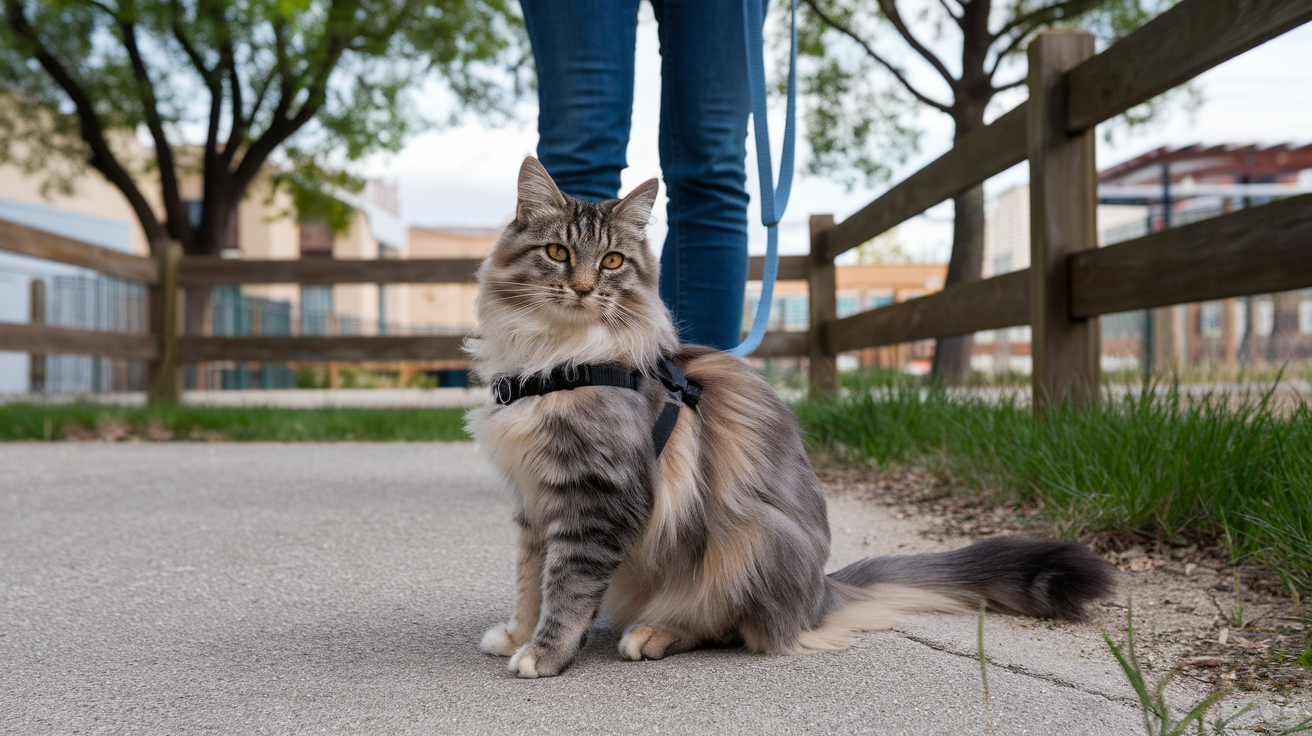
Step by step guide! How much to train your Maine Coon
Essential Grooming Tips for Maine Coon Cats
Maine Coons require regular grooming to maintain their thick, semi-long fur. Neglecting grooming can lead to matting, hairballs, and skin irritation.
Step-By-Step Grooming Guide:
- Brushing (3-4 times per week) – Use a stainless steel comb to remove loose fur and prevent matting.
- Bathing (Once Every 2-3 Months) – Since their fur is water-resistant, occasional baths with cat-friendly shampoo help keep their coat clean.
- Ear Cleaning (Weekly) – Maine Coons have large, tufted ears that can accumulate wax. Use a damp cotton pad to wipe gently.
- Nail Trimming (Every 2-3 Weeks) – Keeping nails short prevents overgrowth and injuries.
- Dental Care (At Least Once a Week) – Brush their teeth with cat-safe toothpaste to prevent dental disease.
- Eye Cleaning (As Needed) – Wipe away any tear stains using a damp cloth.
Pro Tip: Introduce grooming gradually from a young age to ensure they enjoy the process.
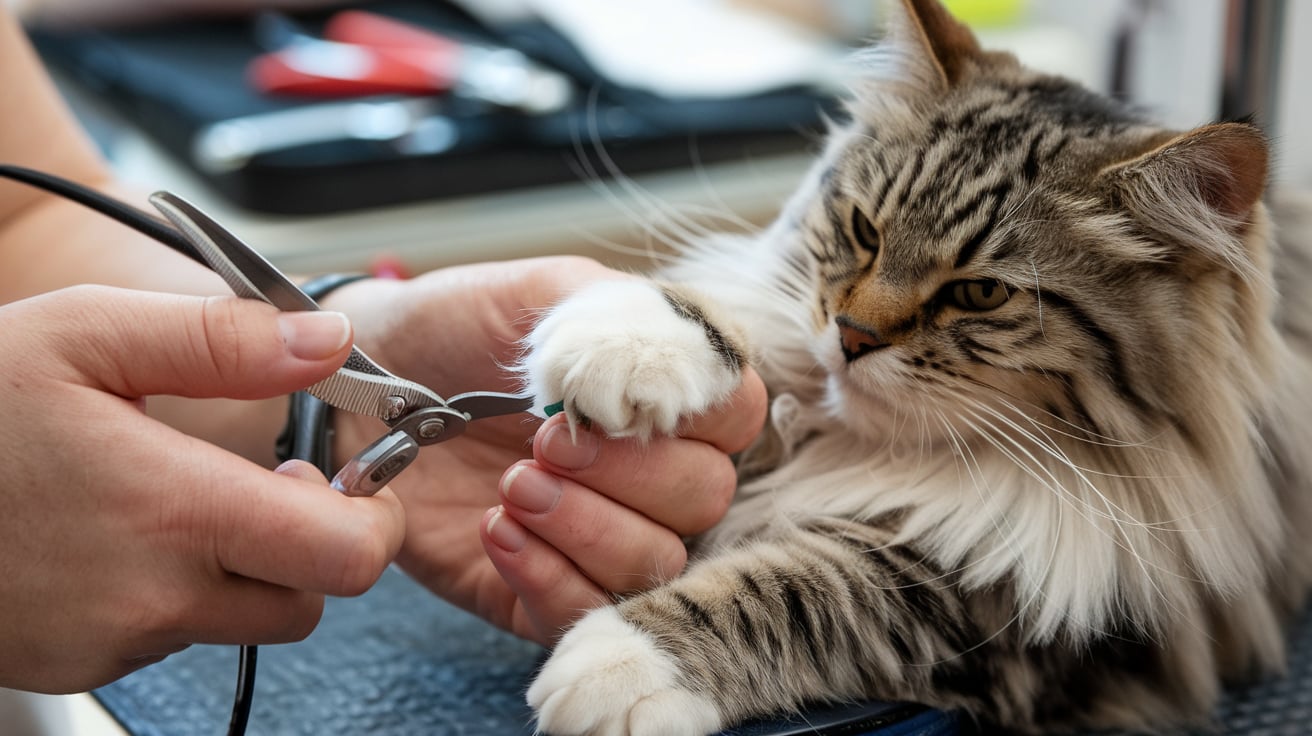
Comprehensive Guide: Grooming your Maine Coon
Proper Nutrition and Feeding for Maine Coon
Due to their size and build, Maine Coons need a diet that meets their high energy requirements while supporting joint health and coat maintenance. Here’s a detailed guide to feeding your gentle giant:
-
High-Quality Protein: Look for cat food with a named meat source (chicken, turkey, salmon) as the primary ingredient. Protein is crucial for maintaining their muscle mass and overall health. Aim for a protein content of at least 30-35%.
-
Moderate Fat Content: A moderate amount of fat is necessary for providing energy and supporting their water-resistant coat. Look for foods with a fat content of around 15-20%.
-
Joint Support: Given their large size, Maine Coons can be prone to joint problems like hip dysplasia. Look for foods that contain glucosamine and chondroitin, which can help support joint health.
-
Omega Fatty Acids: Essential for maintaining their semi-long coat’s health and shine. Look for foods that contain fish oil, flaxseed, or other sources of omega-3 and omega-6 fatty acids.
-
Avoid Grains and Fillers: Choose grain-free or limited-grain options to minimise the risk of digestive issues and allergies.
-
Portion Control is Essential: Maine Coons can be prone to obesity if overfed, so it’s important to monitor their food intake. Feed them measured portions twice a day, rather than free-feeding. Use a measuring cup to ensure accurate portion sizes.
-
Wet vs. Dry Food: A combination of wet and dry food can be beneficial. Wet food helps with hydration, while dry food can help maintain dental health.
-
Large Breed Kibble: Consider feeding them kibble specifically designed for large breed cats, as these tend to be larger in size and can help promote better chewing habits.
-
Fresh Water Always: Always ensure your Maine Coon has access to fresh, clean water. A water fountain can encourage them to drink more.
-
Treats in Moderation: Offer healthy treats in moderation, such as cooked chicken or fish, rather than processed commercial treats.
-
Consult Your Vet: Always consult with your veterinarian for tailored dietary advice based on your Maine Coon’s age, weight, activity level, and any specific health concerns. They can help you choose the best food and feeding schedule to keep your gentle giant healthy and happy.
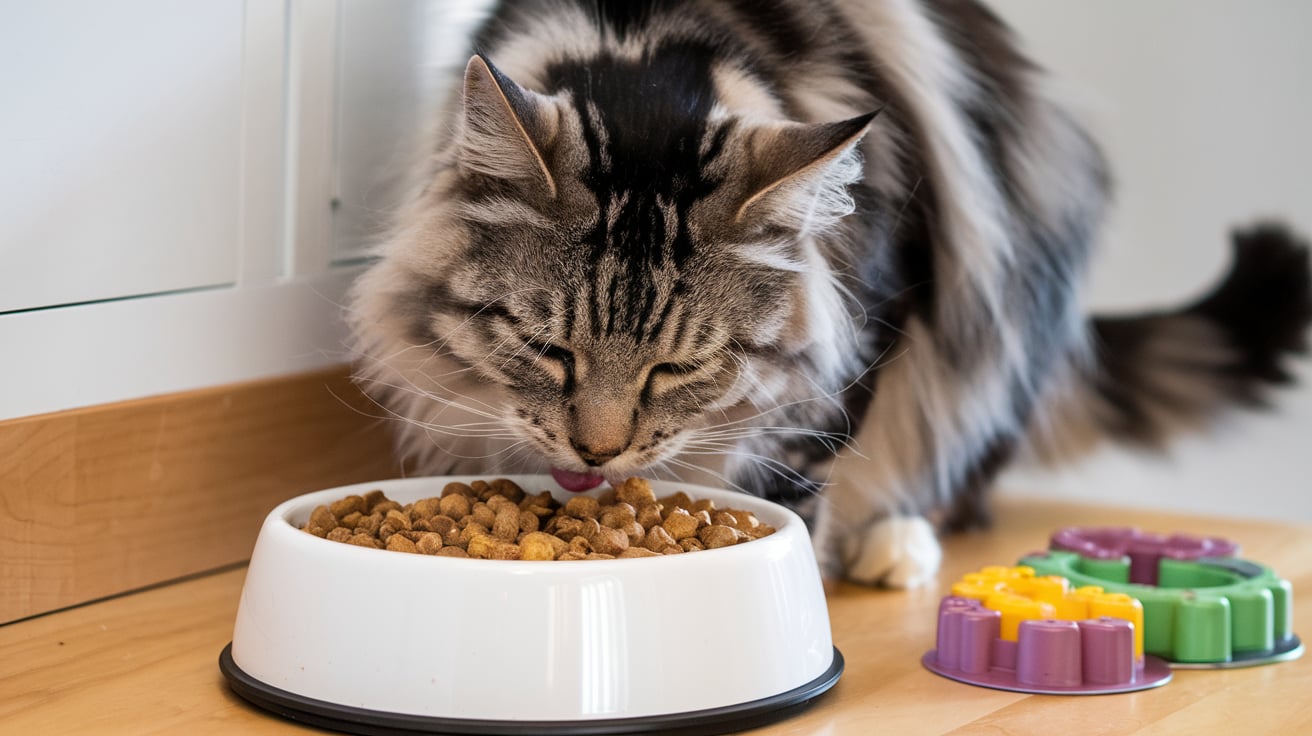
Good to know! How much exercise do Maine Coons need?
Interesting Facts About Maine Coon Cats
- Guinness World Record Holder – The longest domestic cat ever recorded was a Maine Coon named Stewie (48.5 inches long)!
- Loves Water – Unlike most cats, Maine Coons enjoy water and often play in sinks, bathtubs, and water bowls.
- Polydactyl Trait – Some Maine Coons have extra toes, a genetic trait that was once common in the breed.
- Slow Maturity – Unlike other cats, Maine Coons take 3-5 years to reach full size, making them giant kittens for years.
- Social Butterflies – They love human company and often greet guests at the door.
- Winter-Ready – Their thick, water-repellent fur and tufted paws help them walk on snow like natural snowshoes.
Maine Coon Breed FAQ's
Are Maine Coons good with children?
Yes, Maine Coons are known for being patient and tolerant with children, making them excellent family pets. Given their size, its important they are introduced to family life from a young age.
Are Maine Coons Hypoallergenic?
No, they are not hypoallergenic. They produce dander and allergens, which may trigger allergies in sensitive individuals.
Do They Like Being Picked Up?
Some Maine Coons enjoy being held, but their large size (up to 9 kg!) means they require proper support when picked up.
Do Maine Coons Get Along with Dogs?
Yes! Their friendly, dog-like personality makes them one of the best cat breeds for multi-pet households.
Are Maine Coons High-Maintenance?
They require regular grooming, an enriched environment, and a high-protein diet, but their easygoing nature makes them relatively low-stress pets.
Can Maine Coons Be Left Alone?
They can tolerate being alone for a few hours, but they thrive on companionship. Interactive toys, another pet, or a window perch can help keep them entertained.
Do Maine Coons shed a lot?
Yes, Maine Coons have moderate to high shedding tendencies due to their semi-long coats. Regular brushing (at least a few times a week) is essential to minimise shedding and prevent matting.
Are Maine Coons vocal?
While Maine Coons can be vocal, their meows are typically soft and chirping, rather than loud and demanding.
Similar Cat Breeds
-
Norwegian Forest Cat: Similar size and rugged build, also developed for cold climates.
-
Siberian: Large, semi-longhaired breed with a playful personality, known for being hypoallergenic.
-
Ragdoll: Large, laid-back breed with a gentle temperament and striking blue eyes. They also have a tendency to go limp.
-
Turkish Van: Large size and playful personality, known for their love of water. This is not a common trait for other breeds.
-
Ragamuffin: This breed is a gentle giant, loving family lives. They are great cats to have.
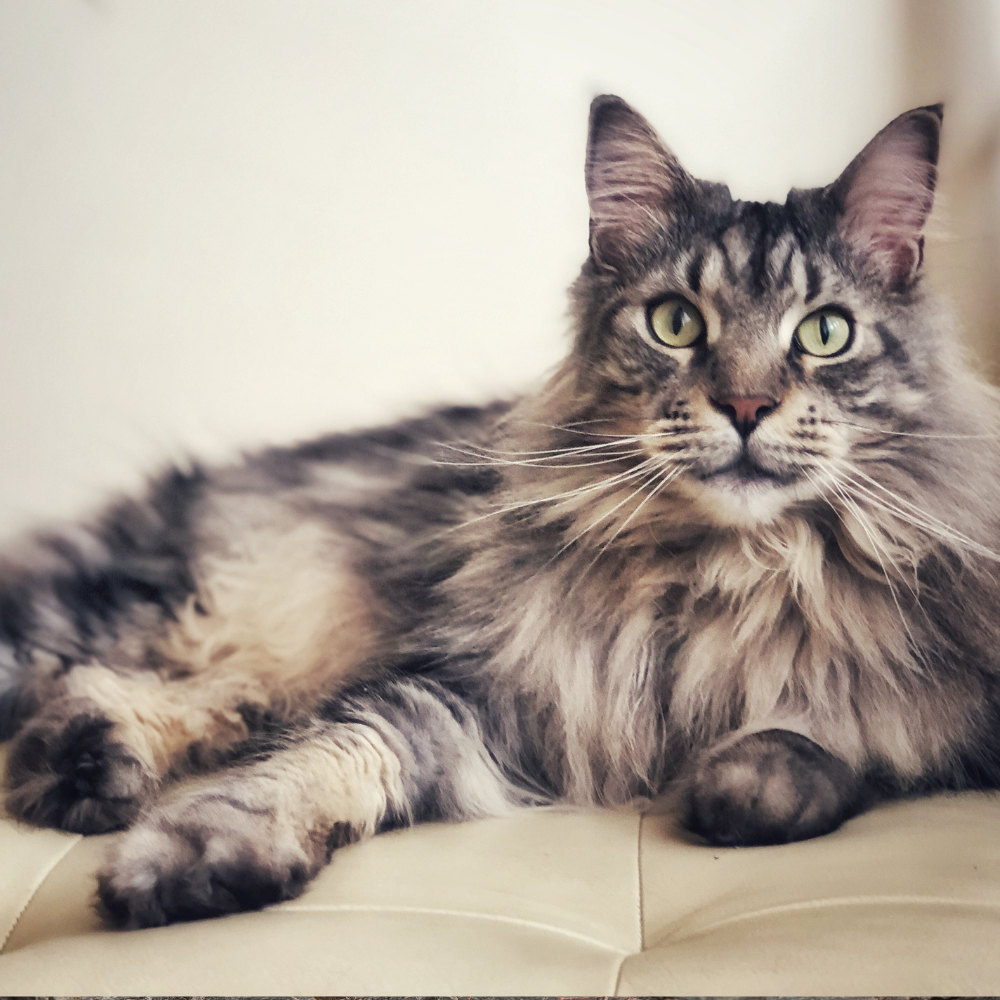
Cat mad
The team at Cat Mad are lifelong cat enthusiasts and regularly give cats loving homes through fostering and adoption. With over 50 years of combined hands-on experience caring for cats of all breeds and temperaments, we share our knowledge and insights to help cat owners provide the best possible care for their furry friends.
Cat mad
The team at Cat Mad are lifelong cat enthusiasts and regularly give cats loving homes through fostering and adoption. With over 50 years of combined hands-on experience caring for cats of all breeds and temperaments, we share our knowledge and insights to help cat owners provide the best possible care for their furry friends.
Latest Cat Mad Blogs
Are Cats Lactose Intolerant? Cats and Milk Explained
-
Posted by
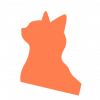 Cat Mad
Cat Mad
- 0 comments
What human food can cats eat & what to avoid
-
Posted by
 Cat Mad
Cat Mad
- 0 comments
Why Does My Cat Bite My Nose?
-
Posted by
 Cat Mad
Cat Mad
- 0 comments
How much wet cat food should I feed my cat?
-
Posted by
 Cat Mad
Cat Mad
- 0 comments
Why Does My Cat Bite Me Then Lick Me?
-
Posted by
 Cat Mad
Cat Mad
- 0 comments
Do Cats Get Bored? Signs, Causes, and How to Help
-
Posted by
 Cat Mad
Cat Mad
- 0 comments
Do Cats Cry? Understanding Their Watery Eyes
-
Posted by
 Cat Mad
Cat Mad
- 0 comments
The Ultimate Guide to Mixing Cats and Dogs
-
Posted by
 James
James
- 0 comments
How to Make Sure Your Cat Comes Home
-
Posted by
 James
James
- 0 comments
Tips for Stress-Free Moving with Cats
-
Posted by
 James
James
- 0 comments
Can You Use Sudocrem or Savlon on Cats? What Vets Want You to Know
-
Posted by
 Cat Mad
Cat Mad
- 0 comments

